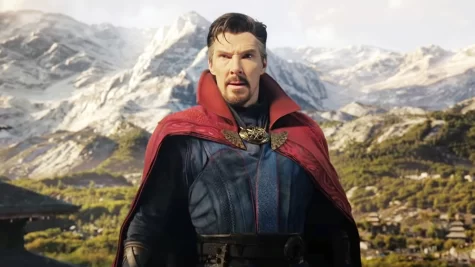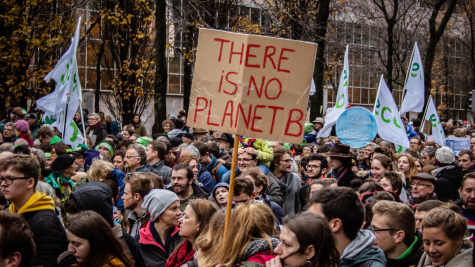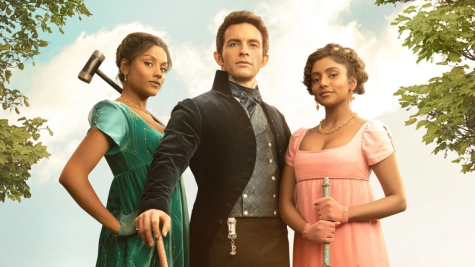Don’t Look Up review
Everybody loves a happy ending. A hero. A feel-good kind of movie. And Adam McKay’s most recent film, “Don’t Look Up,” is anything but.
McKay explores how humanity is dealing — or rather not dealing — with climate change.
“Don’t Look Up” takes a strikingly satirical approach to climate crisis when grad student Kate Dibiasky (Jennifer Lawrence) discovers an Everest-sized comet, and her professor, Dr. Randall Mindy (Leonardo DiCaprio) finds that it is on a direct path to Earth. From there, realization transforms into a frantic hurry to do one thing: tell someone. Now, what could have been a united, immediate effort to alleviate the urgent threat to Earth’s safety, becomes a twisted and frustrating push-and-pull with NASA, the Trump-adjacent President (Meryl Streep) and her son (Jonah Hill).
Passed over by NASA and the White House, Kate, Dr. Mindy and Dr. Teddy Oglethorpe (Rob Morgan), the head of the Planetary Defence Coordination Office, attempt to warn humanity of the impending comet catastrophe. They are essentially heroes — in their own twisted and undeniably real way. Often, they struggle handling the weight on their shoulders. (That weight being saving all humanity.)
Throughout the movie, one fact becomes clear: the cast is star packed. With appearances from Cate Blanchett, Ariana Grande, Timothée Chalamet and Kid Cudi, every other scene has a familiar face. However, even with a promising line-up, “Don’t Look Up” remains flawed in several ways.
The film tackles so many problems — too many problems. Trying to address politics, self-interested elites, indifference to climate crisis and social media’s fast-moving nature spreads the movie thin. “Don’t Look Up” is resentful and frustrated; it’s chaotic. Arguably, this can be seen as parallel to reality but the lack of focus doesn’t reach the viewer with purpose. It tackles complex concepts with nothing too deep under the surface. Thus, “Don’t Look Up” hardly inspires a lasting sense of thoughtfulness.
On the other hand, while America could absolutely use a female president, Meryl Streep’s character takes too much of a hit for the faults of real male politicians in power. Instead of taking an opportunity to address the issues of patriarchy, sexism and men in power excusing the actions of other men in power, McKay places the blame of today’s corrupt political climate on a woman for a few cheap, sexist jokes.
However, “Don’t Look Up” is hard-hitting on the obvious: how those with power to address climate change are willingly ignorant. Thinly veiled with comedic distraction, McKay directly confronts corrupt politics, greed and celebrity culture with an aggressiveness that makes viewers a bit uncomfortable. And, it’s supposed to.
One of the movie’s most favorable traits is its ability to make viewers shift in their seat, make them uneasy and ask probing questions. All in all, it makes viewers reflect on the world right now (Yes, it really is that messed up). Most importantly, McKay demonstrates the urgency of climate change — the very real comet-equivalent catalyst of global destruction.
“Don’t Look Up” points out how dysfunctional society is and how indifferent and numb humanity is turning. Despite its flaws and the fact that the plot drags on a little too long, a movie largely focused on the climate crisis topping charts is an absolute win.












